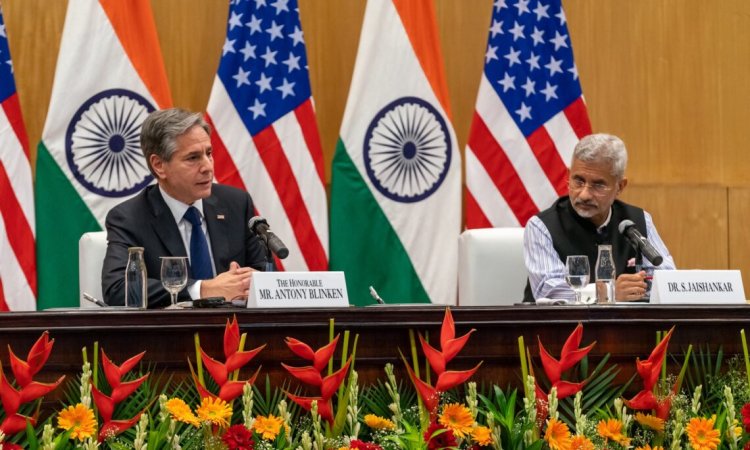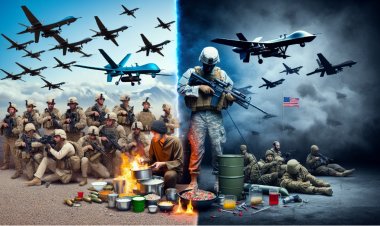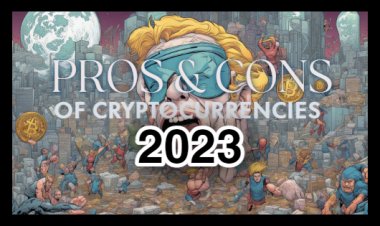US Snubs Canada over the recent Khalistan brawl
Explore the dynamics of diplomatic relations at the G20 Summit, the General Assembly, and beyond, as seen through a welcoming discussion between colleagues at the State Department.

Diplomacy is really important for shaping how countries interact and get along. Different countries talk through things like big meetings where leaders and representatives chat and negotiate to handle world problems and try to understand each other better. This article dives into the complex and fascinating world of diplomacy, focusing on the talks at the G20 meeting, the General Assembly, and other places too. Come explore how diplomacy works and check out what the State Department and their partners around the world are up to.
Keeping in touch: a look at diplomacy in DC and elsewhere
Welcoming EAM of India Dr. S. Jayashankar: A Look at State Department Chats
Hi and welcome to the State Department in Washington, where the stage is set for cool talks and good engagement with diplomats from all over. At a recent meeting, our pals at the State Department warmly welcomed Mr. J. Shankar, a valued friend, to discuss their great interactions at the G20 meeting and General Assembly in New York.
The G20 meeting brings together leaders of major economies to discuss urgent global stuff. They cover a wide range of topics, including economic growth, sustainability, climate change, and trade between countries. The summit lets countries share ideas, work together, and find common ground on big issues affecting the world.
The General Assembly is like a big meeting place for all the countries in the United Nations. Here, they can talk about the big problems happening around the world and try to figure out solutions together that help everyone. These meetings remind countries that they need to work together. They also give diplomats a chance to meet face-to-face, understand each other better, and build relationships for working together later on all kinds of issues important to their countries and the whole world.
When EAM S. Jayasankar and the U.S. officials talked after the G20 Summit, he said thanks for the help the U.S. gave during the summit. This shows how important it is for countries to work together on global challenges. The G20 Summit lets nations talk about and take action together on stuff like climate change, economic stability, and security.
By participating in the G20 Summit, the U.S. State Department shows it is committed to cooperating internationally and helping build a better future for everyone. Working with other countries, the State Department actively helps develop policies and initiatives that promote economic growth, sustainable development, and countries living in peace.
The United States showed its leadership and dedication to working together globally during the General Assembly too. When representatives get together to talk about pressing problems, the U.S. tries to promote its values of democracy, human rights, and international law. The General Assembly gives countries a chance to join forces, rally support, and develop a shared vision for a more prosperous and peaceful world.
It's worth noting that discussions at these events often focus on finding common ground and building agreement among nations. This takes skilful diplomacy, tactful negotiation, and the ability to bridge differences, and the State Department's involvement in this conversation shows its commitment to fostering productive relationships and keeping strong alliances.
Being Committed to Silence and Strategy: Navigating International Diplomacy
Silence and strategy play an important role in international diplomacy. Our colleagues at the State Department emphasise during their talks that they are committed to not publicly discussing the statements or positions of Secretary Blinken or other representatives before they themselves have had a chance to articulate them.
This commitment comes from understanding that diplomacy requires careful navigation and strategic planning. It's important to convey a unified and coherent message to effectively represent a nation's interests and positions. By sticking to this principle, diplomats show respect for the nuances and complexities of international relations and foster an environment good for constructive dialogue and cooperation.
The State Department sticks to their commitment to carefully thinking through what they say and where they stand. They think about stuff like national interests, world politics, and any ongoing talks between countries. This helps create an atmosphere of trust and respect between countries that opens the door for working together in a way that's good for everyone.
Pushing to Work Together: Keeping in Touch with India's Government <br /> Staying engaged with India's government is still a top priority for the State Department. When they talked recently, our colleagues emphasised that they were still working hard to move cooperation forward and strengthen ties between the U.S. and India.
You really can't overstate how important U.S.-India relations are, and since both are lively democracies and major world powers, they share common interests in dealing with urgent issues like security trade, climate change, and regional stability. By promoting working together, the State Department aims to strengthen this crucial partnership and build a solid base for future teamwork. Through diplomatic conversations, the State Department actively engages with India's government to explore areas of shared interest and address potential concerns. Through open communication and a cooperative spirit, both countries can work together to tackle challenges and seize opportunities that benefit their citizens and the world.
Looking ahead, expect ongoing diplomatic engagement to continue.
Going forward, it's obvious that diplomacy is going to keep playing a big part in how countries deal with each other. The State Department chatting it up at stuff like the G20 meeting, the UN General Assembly, and other important get-togethers shows they're hellbent on keeping the lines of communication open and working together as global partners.
With tricky problems like climate change, economic inequality, and security threats, we really need effective diplomacy now more than ever. By constantly engaging with each other, having respectful dialogues, and negotiating strategically, diplomats can build bridges, promote understanding, and pave the way for a more peaceful and prosperous world.
Diplomatic relations between countries aren't just about formal meetings and events but also personal relationships, cultural exchanges, and people-to-people connections. By developing these relationships and promoting mutual respect, diplomats help create a global community that values cooperation, understanding, and shared prosperity.
Diplomatic relations are a fundamental part of how countries interact. As we've seen from discussions at the G20, UN General Assembly, and talks with India, diplomats play a critical role in encouraging cooperation, building alliances, and tackling global challenges. The State Department's commitment to consistent engagement and strategic diplomacy shows they're dedicated to promoting international cooperation and working towards a more peaceful and prosperous world. Let's keep supporting and honouring the efforts of diplomats as they pursue diplomacy and global harmony.
Meanwhile…
You can just join our account management program and relax. We will make at least 1% profit for you on your account – Check out how by clicking on the link below.
Have fun trading!
Have a great journey, and may you catch some big waves on your way to prosperity!
To see this for real, click here.
https://www.myfxbook.com/members/SankarGanesan/tradefxp-trend-antitrend-day-trading/10404725
To read why you should be with us, click here
To open an account, click here.
To see our regulation certificate: click here.
To see our news with the IFMRRC: click here.
For claims, click here.
For the main site: click here.
For blogs and articles: click here.
Main Website: www.tradefxp.com



 admin
admin 










